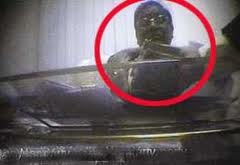
New Delhi, April 27: Former BJP president Bangaru Laxman has been convicted, 11 years after he was caught on camera allegedly taking bribe in a sting operation.
A special CBI court here held Bangaru guilty of accepting Rs 1 lakh bribe in 2001 and convicted him under the Prevention of Corruption Act.
The court of special CBI judge Kanwaljeet Arora sent Bangaru into judicial custody soon after convicting him. The former BJP chief was taken into custody immediately after the court order.
He will be produced before the court on Saturday when the quantum of sentence in the case will be pronounced.
According to TV reports, the CBI will press for maximum punishment of five years against him.
Earlier, the court had on April 2 reserved its order in the case.
The corruption charges were framed against Bangaru Laxman in May 2011.
The case dates back to 2001, when Tehelka.com carried out "Operation Westend", a sting that exposed the scandal. It has alleged that Laxman was caught on camera receiving money from an undercover journalist, posing as an arms dealer.
He later resigned as the BJP chief.
Tehelka released the sting CDs allegedly showing Laxman accepting money for awarding a contract to a fictitious Britian-based company M/s West End International, for the supply of hand-held thermal imagers to the Indian Army.
The Central Bureau of Investigation in its charge sheet alleged that Laxman accepted Rs 1 lakh from the representatives of the purported firm in 2001 at his office for pursuing their proposal to supply certain products to the army.
"Tehelka portal scribes, impersonating as representatives of West End International, had held eight meetings with Laxman between Dec 23, 2000 and Jan 7, 2001, projecting themselves as suppliers of defence-related products," said the charge sheet.
Immediately after the judgement, the Congress targeted the BJP.
Congress leader Manish tiwari said the BJP should introspect after the verdict.





Comments
Add new comment